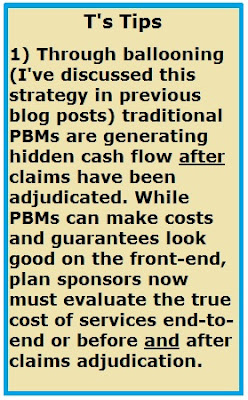 |
| Ballooning: click to learn more |
Suits have been filed against insurers UnitedHealth Group Inc., which owns manager OptumRx; Cigna Corp., which contracts with that manager; and Humana Inc., which runs its own. Among the accusations are defrauding patients through racketeering, breach of contract and violating insurance laws.
“Pharmacies should always charge our members the lowest amount outlined under their plan when filling prescriptions,” UnitedHealthcare spokesman Matthew Wiggin said in a statement. “We believe these lawsuits are without merit and will vigorously defend ourselves.”
Mark Mathis, a Humana spokesman, declined to comment. Matt Asensio, a Cigna spokesman, said the company doesn’t comment on litigation.
“Patients should not have to pay more than a network drugstore’s submitted charges to the health plan,” Charles Cote, a spokesman for the Pharmaceutical Care Management Association, said in a statement.
Benefit managers are obscure but influential middlemen. They process prescriptions for insurers and large employers that back their own plans, determine which drugs are covered and negotiate with manufacturers on one end and pharmacies on the other. They have said their work keeps prices low, in part by pitting rival drugmakers against one other to get better deals.
The clawbacks work like this: A patient goes to a pharmacy and pays a co-pay amount — perhaps $10 — agreed to by the pharmacy benefit manager, or PBM, and the insurers who hire it. The pharmacist gets reimbursed for the price of the drug, say $2, and possibly a small profit. Then the benefits manager “claws back” the remainder. Most patients never realize there’s a cheaper cash price.
“There’s this whole industry that most people don’t know about,” said Connecticut lawyer Craig Raabe, who represents people accusing the companies of defrauding them. “The customers see that they go in, they are paying a $10 co-pay for amoxicillin, having no idea that the PBM and the pharmacy have agreed that the actual cost is less than a dollar, and they’re still paying the $10 co-pay.”
On Feb. 10, a customer at an Ohio pharmacy paid a $15 co-pay for 40 milligrams of generic stomach medicine Pantoprazole that the pharmacist bought for $2.05, according to receipts obtained by Bloomberg. The pharmacist was repaid $7.22, giving him a profit of $5.17. The remaining $7.78 went back to the benefits manager.